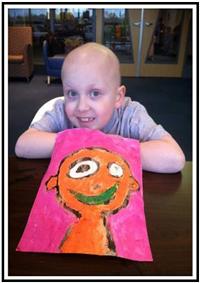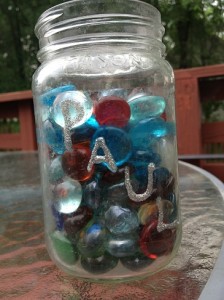The Basics Help Every Child Have a Great Start
By Guest Blogger Megan LeFaivre
Every parent wants to give their child the best start in life to prepare them for a future of happiness and success. However, many parents believe their child’s education begins on the first day of kindergarten. That is not true! Children learn new things every day, starting on the day they are born. In fact, research shows that 80% of a child’s brain growth happens before the age of three. A good foundation in these early years can be critical in helping a child succeed both when their formal education begins and later in life.
While this may seem a bit overwhelming, there are Basic things parents and caregivers can do with babies and toddlers to help lay the groundwork for success. Developed by leading brain scientists at Harvard University, the Basics are five, fun, free and simple things that can have a lasting impact on a child’s brain development and future!
The Basics are:
Maximize Love, Manage Stress
Infants and toddlers thrive when their world seems loving, safe and predictable. When you express love and respond to their needs, you teach children that they can count on you.
Over time, showing and responding to love helps children learn to manage their feelings. As they grow, feeling secure gives children the confidence they need to explore, learn and take on the world!
Talk, Sing and Point
Babies learn language from the moment they are born. To a newborn baby, speech is just sound. Then, day by day, they learn that sounds have meaning. Every time you talk, sing or point to what you are talking about, you provide clues to the meaning of what you are saying.
As your child develops, talking with them and answering their questions is a way to teach them about the world. By talking with them, you will also get to know more about the fascinating person they are becoming!
Count, Group and Compare
Becoming good at math begins long before a child enters school. Even babies can understand simple math, such as noticing patterns. Toddlers love learning math through puzzles and games, such as comparing sizes and shapes. These concepts help them make sense of the world.
You can help your child learn math as you play and talk together during everyday moments. By building on their natural skills and interests, you will boost their brain development and prepare them to do well in school.
Explore Through Movement and Play
Movement and play are good for children’s coordination, strength and overall health. They are also how children explore and learn about the world. Each stage of development comes with new opportunities. For example, an infant might explore by touching, grasping, chewing or crawling. A toddler might explore by walking or climbing.
Young children are like scientists—curious and excited to explore their surroundings. See where your child’s curiosity takes them.
Read and Discuss Stories
The more we read with young children, the more likely they are to enjoy reading and do well in school — even looking at books 15 minutes a day can make a huge difference! With infants, spend time daily looking at books and talking to your child about the pictures they see. As your child gets older, ask them questions about what is happening in the story.
Stories expose children to words and ideas that they would not otherwise experience. For both parents and children, times together with books form fond and lasting memories.
To learn more about the Basics and find simple ways to incorporate them into your daily life, visit GuilfordBasics.org or follow us on Facebook, Instagram or YouTube.
Megan LeFaivre is the Literacy Coordinator for Ready for School, Ready for Life, a 501(c)(3) organization focused on ensuring all children in Guilford County and their families get the resources they need for healthy development.
Want to get notifications on local events and happenings? Subscribe to Triad Moms on Main’s free weekly newsletters here.







